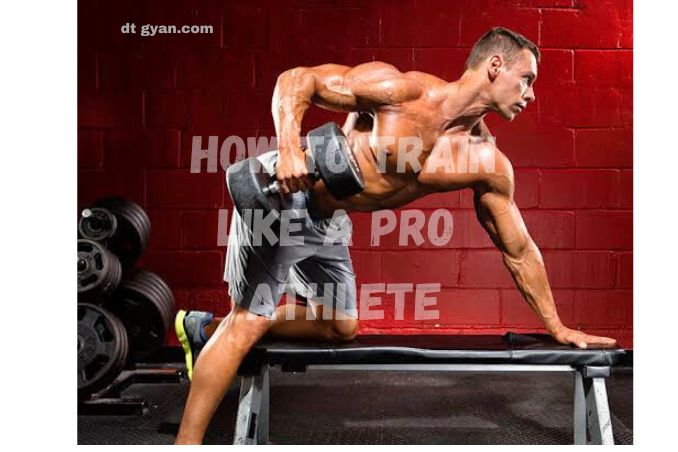
How to Train Like a Professional Athlete: Tips and Tricks
Introduction
Becoming a professional athlete is a dream for many, How to Train Like a Professional Athlete: Tips and Tricks reaching that level takes more than just talent. It requires dedication, hard work, and strategic training. In this article, we’ll explore the tips and tricks to help you train like a professional athlete and elevate your performance to new heights.
Setting Clear Goals
One of the first steps in training as a professional athlete is setting clear, achievable goals. Whether you’re improving your speed, strength, or endurance, having specific objectives will guide your training and keep you focused on your goals.
Establishing a Routine
Consistency is vital in training. Establishing a regular workout routine helps you stay disciplined and allows your body to adapt and improve over time. Make sure to schedule your training sessions at times when you’re most energized and focused.
Balancing Training and Rest
While it’s important to push yourself during training, giving your body time to rest and recover is equally crucial. Overtraining can lead to injuries and burnout, so listen to your body and incorporate rest days into your schedule.
Focus on Proper Nutrition
Nutrition plays a significant role in athletic performance. Fuel your body with a balanced diet that includes a variety of nutrients to support your training efforts. Stay hydrated, consume adequate protein, carbohydrates, and healthy fats, and remember to refuel after workouts.
Incorporating Cross-Training
Cross-training involves incorporating various exercises and activities into your routine to target different muscle groups and prevent boredom. Mix your workouts with activities like swimming, cycling, or yoga to improve overall fitness and reduce the risk of overuse injuries.
Seeking Professional Guidance
Consider working with a coach or personal trainer who can provide expert guidance and support tailored to your specific goals and needs. A professional can help you design a training program, monitor your progress, and make adjustments as necessary to ensure optimal results.
Listening to Your Body
Pay attention to how your body feels during training. If you experience pain or discomfort, don’t ignore it. Pushing through pain can lead to severe injuries. Instead, modify your workouts as needed and seek medical attention if necessary.
Embracing Mental Training Techniques
Training like a professional athlete isn’t just about physical strength; it also requires mental toughness. Incorporate mental training techniques such as visualization, positive self-talk, and goal setting to enhance performance and overcome challenges.
Tracking Progress and Adjusting Accordingly
Keep track of your progress by monitoring key metrics such as strength gains, speed improvements, and endurance levels. Use this data to identify areas for improvement and adjust your training program accordingly to continue progressing.
Consistency is Key
Consistency is crucial when it comes to achieving athletic success. Stay committed to your training regimen, even when you don’t like it. Remember that progress takes time, and staying consistent will eventually lead to results.
Recovering Effectively
Proper recovery is essential for maximizing the benefits of your training. Incorporate strategies such as foam rolling, stretching, and massage to help your muscles recover faster and reduce soreness.
Staying Motivated
Maintaining motivation can be challenging, especially when faced with setbacks or obstacles. Find ways to stay inspired and focused on your goals, whether by surrounding yourself with supportive peers, visualizing success, or rewarding yourself for achievements.
Overcoming Challenges
Every athlete faces challenges on their journey to success. Whether it’s injuries, setbacks, or doubts, learn to overcome obstacles with resilience and determination. Stay flexible in your approach, adapt to changing circumstances, and always remember your ultimate goals.
Conclusion
Training like a professional athlete requires more than physical prowess; it demands discipline, dedication, and a strategic approach to training. You can elevate your performance and achieve your athletic aspirations by setting clear goals, establishing a routine, focusing on proper nutrition, and incorporating various training techniques.



